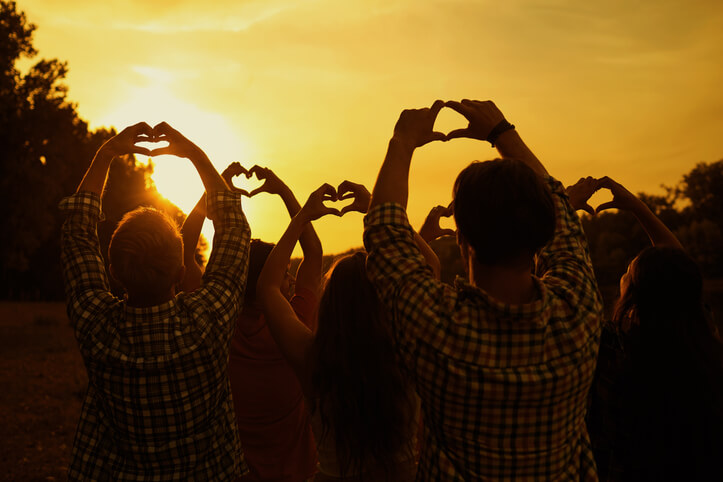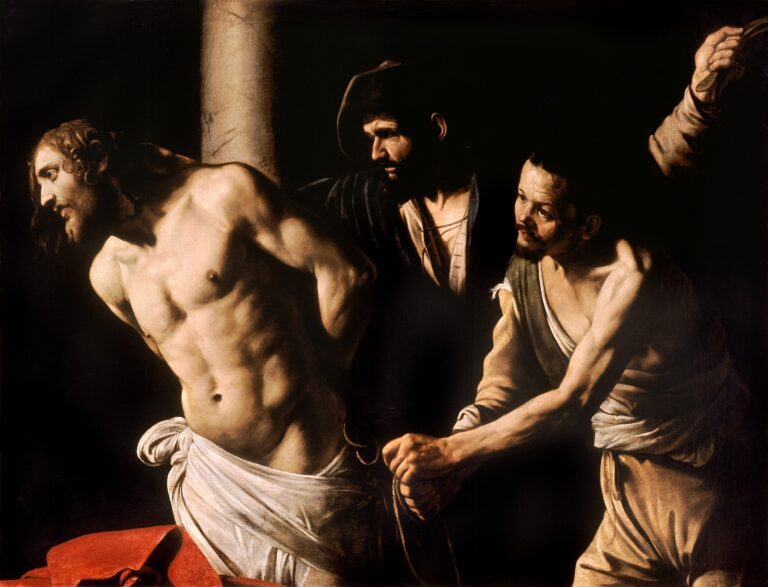
Prison chaplain Leigh Kern on the large-scale human suffering unfolding for those confined during COVID-19—and what you can do about it
From March 24 to April 2, detainees at the Laval Migrant Detention Centre took part in a hunger strike demanding their release, citing the threat posed to incarcerated groups by the COVID-19 pandemic. As of April 4, some detainees had been released, but 20 remained in the facility due to the requirement of individual detention hearings before release.
In Ontario, the Ministry of the Attorney General on April 9 confirmed that more than 2,300 prisoners had been released from provincial jails in an effort to stop the spread of COVID-19 through correctional institutions. As of this writing, the total population of inmates in provincial jails had decreased to 6,025.
For an Anglican perspective on the case for releasing prisoners, the Journal spoke with the Rev. Leigh Kern, coordinator of Indigenous ministries and reconciliation animator for the diocese of Toronto. A prison chaplain who regularly ministers to inmates, Kern has called for the depopulation of correctional facilities to prevent the spread of the virus.
The conversation has been edited for clarity.
What is your involvement in advocating for the rights of prisoners, particularly in relation to the COVID-19 pandemic?
This issue of COVID-19 in prisons is exacerbating the public health crisis that we already have. I do prison chaplaincy in my job, so every week I enter institutions and support prisoners. The underlying health conditions of prisoners are already substantially lower than the general population.
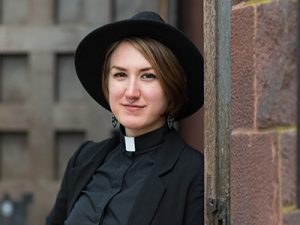
Prisoners that I work with often have long histories of childhood abuse, poverty in childhood and sexual violence, growing up in group homes. Many are Sixties Scoop survivors. Many prisoners I work with are residential school survivors. They’re people that have already borne the brunt of many of our social harms, and they are people that have not been prioritized in terms of adequate resources for their mental, physical, emotional well-being. They’re people that have borne the brunt of systemic racism—black communities, brown communities, migrant communities and Indigenous communities. Working with prisoners, I already support them through underlying mental health issues and challenges, physical health problems. We have a disproportionate level of people with diabetes, mental health issues, even cancers.
It depends on the institution, but in many institutions, prisoners are confined to their cells all hours of the day. Many prisons don’t have outdoor yards where people are able to go outside. The prison I visit, they don’t ever get to go outside and their windows are frosted. You can imagine that not seeing the sunlight, not being able to smell the grass or see a tree, these things have a very significant impact on people’s physical health. Many of the men I work with, they literally pace their cells all day long just to get exercise, and so they’re not able to move around at all.
Being confined is hard on a good day. But then facing down the news that COVID-19 is present in their institutions—COVID-19 is present in the institution that I do prison chaplaincy [in], so I haven’t been able to support or see any of the prisoners that I work with. It’s present in most institutions, through guards and also through the prison population, as people are still being arrested and admitted to prisons.
People feel like they’re a sitting target. Many of them have had a lot of trauma in the health-care system. In some prisons, for example, you have to be strip-searched before you receive any medication. Medication and health care are provided by the institution, which is the body with power in the relationship. So people have a lot of trauma also around accessing health care, and many prisoners I work with inside have a really hard time being able to even see a doctor or a psychiatrist or a social worker. A lot of people with ongoing conditions aren’t able to even access things like medication on a good day.
Now with COVID-19 spreading through institutions, most institutions and some staff also feel unsafe. [When] less guards [come] in to work, then the prison isn’t able to keep itself clean, prisoners aren’t able to be fully supervised, and when that happens, they move to what’s called lockdown.
Lockdown is what most of our prisons are at right now with COVID-19, and this really gets back to the fact that our prison system and our corrections system and our migrant detention system, our refugee support system which criminalizes migrants—these systems are not set up to maximize and safeguard the health and security of the people that are living in these institutions.
As the church, I think it really calls us to ask the question of, what are these institutions for? Because as the general public, as taxpayers, we consent to these institutions and their practices and their policies. But the way that the prison system works, from my perspective, it’s very much based around punishment.
“As Christians, I think—as a society, really—we have turned our backs on prisoners.”
I work with men [where] some of them have harmed people. When I first started doing this work, it was at CAMH [the Centre for Addiction and Mental Health, located in Toronto], maybe six or seven years ago. I worked with people who had harmed others through sexual violence.
What I learned doing that work is that hurt people hurt people. The people that are incarcerated, even those with violent charges, are themselves often victims of violence and systemic violence and systemic barriers that have made life very, very hard. They haven’t been able to receive the kind of support systems such as mental health care that they’ve needed in their lives to heal from trauma and to be able to create a life of safety around themselves, which we all need to be able to thrive.
I really think our prison system’s problems are being exposed through this crisis, because we see that our prisons aren’t equipped to deal with a public health crisis. The conditions of lockdown are very penal, very punishing for people, and it causes massively significant, detrimental mental health impacts on prisoners.
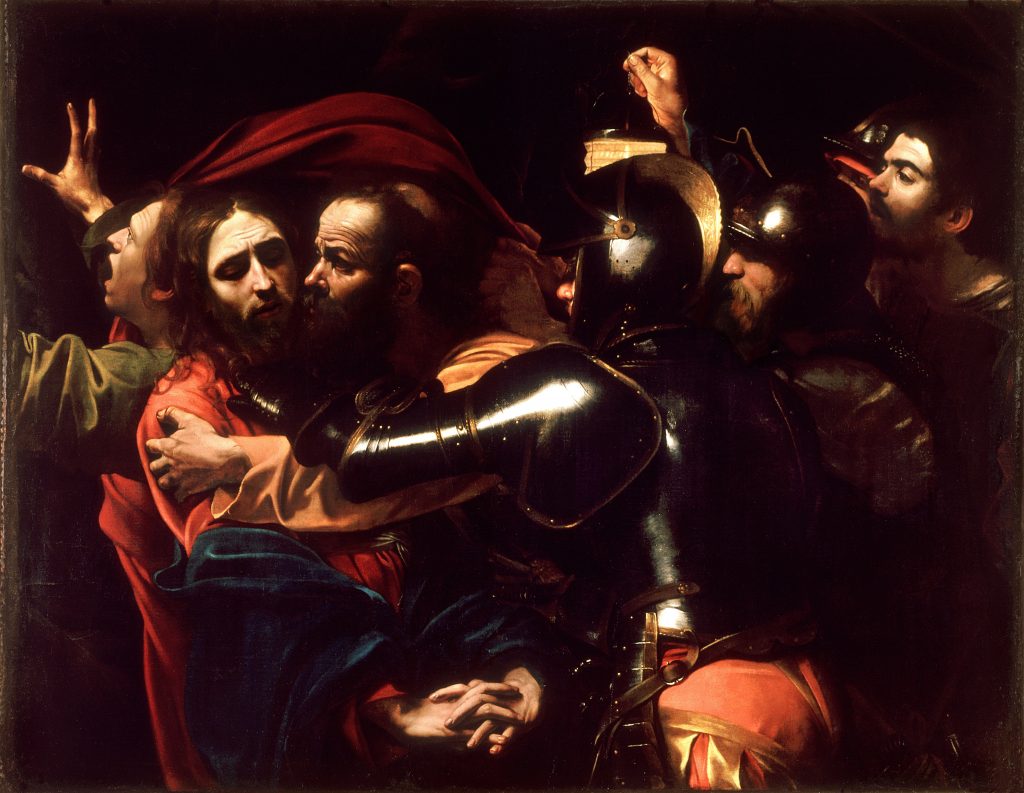
Prisoners that I’ve worked with in supporting them and their release often talk to me about being diagnosed with PTSD from the impact of incarceration. I work with many people that have found the experience of being in prison extremely traumatizing, [which] causes massive strains on their family systems. Seventy-five per cent of women that are incarcerated are mothers. All the men that I work with in prisons are Indigenous men and all of them are fathers. [When] we think of incarceration, it is not just the individual, what the prisoner is going through. It’s also the impact that prisons have on families and the impact of prisons on communities as a whole.
We see Indigenous communities, black communities, migrant communities as having very disproportionate levels of their family members being incarcerated. The stress that that puts on mothers and on families is massive. Of the men that I support, many of them come to me with so much anxiety every day. “I talked to my girlfriend on the phone yesterday and she’s losing her apartment because of me being incarcerated. She’s working two jobs and taking care of two of our kids, and she’s not able to pay the bills anymore. So she’s now losing her housing because her husband is incarcerated.”
We know that there are social determinants of health. Prisoners and the families of prisoners, due to the carceral system, are put at much greater levels of vulnerability and risk. That’s part of also how the system perpetuates itself, as these kids now are put at danger of vulnerability through their family systems being attacked essentially through the carceral state.
I’m really passionate about this. It’s a world that is hidden to most people, and it’s a world that is visible to prison chaplains. So I think we have a really important role to play of witness and working alongside these prisoners and their families to tell their stories and how brutal it can be.
Recent articles have reported on the spread of disease at the Rikers Island jail complex in New York, where hundreds of inmates and guards have tested positive for COVID-19. These reports describe how overcrowding and the lack of sanitary facilities allow the virus to spread easily and suggest a looming humanitarian disaster. Do you see the same kind of conditions in Canadian prisons?
Oh yeah, absolutely. The stats just, as of today even, are at least 41 prisoners, 56 staff members and one contractor of the Canadian carceral system have tested positive for COVID-19, based on numbers received April 7. So we see that COVID-19 is already present in our prisons. Since that has happened, I have not been allowed to obviously enter the prison that I do chaplaincy at, and the prison has been mostly on lockdown.
Lockdown itself has detrimental impacts on people’s health. Being on lockdown for the prisoners that I support means being confined to a cell that is about the size of a bathroom stall. Their cells are really small, and there’s one other person in the cell. As we know, many of our institutions, like [in] the U.S., are overcrowded. Two people confined to a cell about the size of a bathroom, and they’ve got one toilet, a frosted window, no TV, no access to the phone. When you’re on lockdown, you’re basically deprived of any kind of stimulation beyond maybe a book that you can rent out of the prison library system.

From my perspective, and also from many international perspectives, this kind of isolation is a form of torture. They lack stimulation, they’re not able to access the support of health care—chaplains, for example. I’m not able to talk to anyone. Being on lockdown is very similar to being in solitary confinement. They don’t have any stimulation, you’re confined to an extremely small quarter, and some prisoners even in Ottawa reported having to drink water out of their toilet because they weren’t being given water during lockdown.
Different units in the prison can be experiencing different things. Some units have reported to whistleblowers on the outside that they don’t have access to food or drink or cleaning supplies as frequently as they need. Prisoners that I work with often have reported not being able to access medications, not being able to brush their teeth, to shower, to use the bathroom in privacy. When you’re on lockdown, all those things are taken away, so it very much feels like a punishment for prisoners. Being on lockdown is like hell.
For many prisoners, of course, they have really important relationships in their lives, and they’re not able to receive those support systems. A lot of Canadians right now are surviving having to be isolated to their homes through the Internet, through social media. But most prisoners have no access to any of those resources that the rest of us draw upon to support our emotional, spiritual, physical, intellectual, mental well-being. Prisoners are not able to draw on those same resources, and it’s an extremely painful and degrading experience.
The migrants that are being detained in Laval and who have been on hunger strike [against] the conditions of their lockdown report feeling totally powerless. They hear that COVID-19 is present in the general population, it’s in communities, and they have no control over who is coming in and out of their personal space. They have no access or right to tell people, “Don’t touch my cutlery,” or “Don’t do this.” The guards are the people that hold the power in these situations, and are often responsible for having to physically discipline prisoners. As statistics say, 56 staff members at Canadian corrections have tested positive for COVID-19. We know that likely then, that number is much greater.
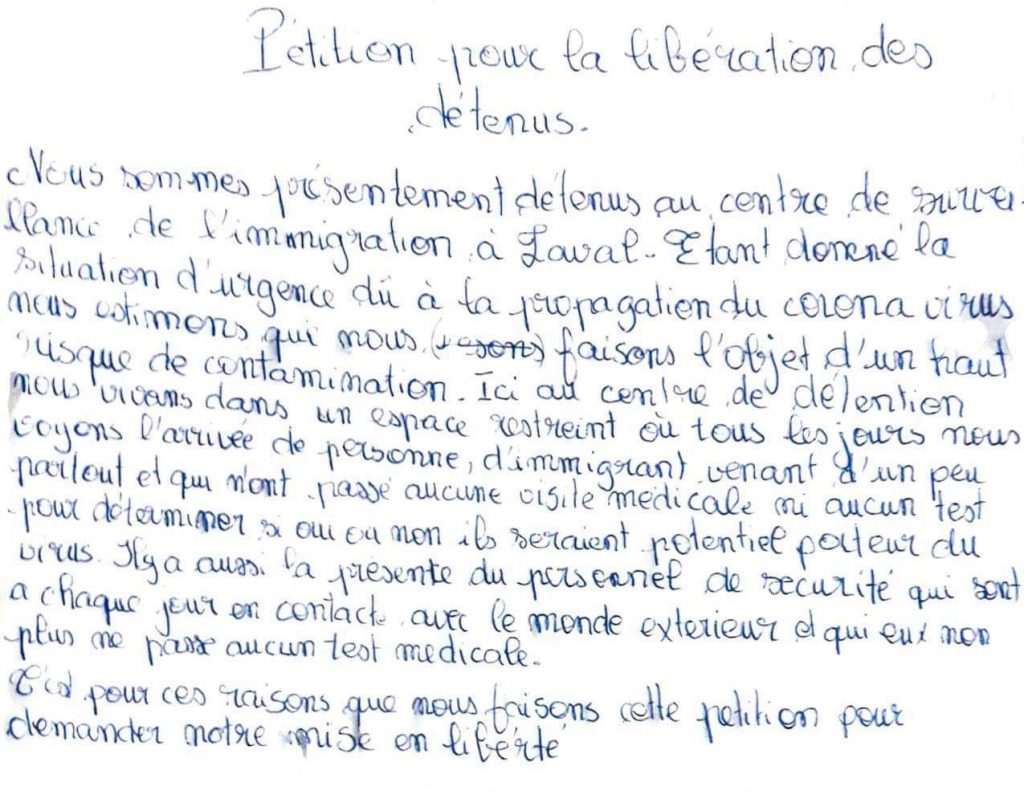
People don’t trust that the staff themselves are going to be protecting the prisoners from contracting the virus, and they have no agency or control over protecting themselves. So the migrants at the Laval detention centre went on hunger strike to protest these conditions and say, “Our lives are not disposable.” We’ve seen about 10% of the prison population of Canada being released right now. But what that means is that there are still 90% of prisoners that are in lockdown situations, that have almost no access to things like a private bathroom or showers or even hand sanitizer.

Our prisons are not equipped to deal with this public health crisis, and really, to me, it says something. It shows us what our prison system is like: that it’s based on principles of control and punishment, very much the same logic of the Indian residential school system.
To me as an Anglican, somebody that was born into an Anglican family, I believe that we have a responsibility to study colonialism and to study the Indian residential school system, and study that same logic of taking people out of their families, removing them forcibly from their communities, and bringing them to a detention centre far away from their family; far away from their community, their cultural life, and isolating them for the purposes of “reform”—changing their spirit, “killing the Indian to save the child,” so to speak. I think that our prison system is built around the same logic of the Indian residential school system—of this paternalistic power that is going to intervene in the lives of these vulnerable people, scoop them out of their situation, and then ultimately confine them, control their movements, and then think that they’re going to come out of that experience somehow a better person.
But what we see [in] prisoners I work with especially is a revolving door. I see people that have been criminalized their whole lives for being poor and living on the streets and using drugs to cope with the experiences of trauma that they’ve had in their lives. I see these men being released from prison, released to the streets with no supportive housing, not enough shelter beds—and our shelter system also is not safe. We know that COVID-19 is present in our shelters and our shelters are a terrible and embarrassing situation: people sleeping on yoga mats and confined to small spaces with not enough adequate social distancing. These are not safe and healthy environments for the human body or the human spirit, and these are the kinds of conditions that many prisoners are released to. They’re released to poverty and the violence of homelessness. Then we see them falling through the cracks and being criminalized and vulnerable and then they’re back in prison.
As Anglicans, we worship a crucified God. We worship a God incarnate who was not accepted for who he was, who was rejected and beaten and criminalized and arrested. God’s total identification with the suffering servant, with the one that is belittled and brutalized and humiliated; God’s total identification with the incarcerated and the criminalized to me shows us that we can never turn away from these communities—that God has identified with these communities and said, “What you do to them, you do to me.”
Jesus didn’t say that about any other communities, right? He said, “When you feed the sick, you are feeding me. When you visit the imprisoned, you are visiting me.” As Christians, I think—as a society, really—we have turned our backs on prisoners. The reality is that men, women and queer people that are incarcerated are living in inhumane and brutalizing conditions—conditions that are not adequate for their mental, spiritual, emotional or physical well-being. With COVID-19, many prisoners feel like they are awaiting a death sentence; that they are extremely vulnerable and their families are living with so much anxiety that their husbands, their partners, their best friends, their business partners are not going to be alive in the coming months.
The experience of the fear that they are all going through is something that weighs on my heart every single day. But prisoners don’t have access to their social networks whatsoever, and the fact that that is acceptable to Canadians is so painful for me to think about. Bell Canada has a private contract with Corrections Canada, so they control the phone lines. The range [a common area cell] for example that I go to, there are about 20 or 30 prisoners at any given time on this one range, and there are only two, maybe three phones, so people have to take turns on the phones, etc. It can be quite political. There’s definitely a sense of scarcity. There’s not enough health resources, there’s not enough phones, there’s not enough staff, there’s not enough mental health nurses. There really is a very extreme sense of scarcity for prisoners, not even including the factors of lockdown.

Even on a good day, a prisoner can only use a pay phone, they have to call collect and it can only be to a landline. That obviously of course causes so much struggle in communities, as many people don’t have a landline, especially people living in poverty. They might not keep the same address for long enough in order to be able to hold a landline. Many people just have cellphones, so aren’t even able to be in touch. Prisoners aren’t able to call their children and hear their voices. When you’re living in total isolation, like in lockdown, that is just so detrimental, and if you’re on lockdown, you can’t even make any calls.
That’s also one of the demands that prisoners’ human rights organizations are making right now, is for the depopulation of prisons: the release of prisoners to their families, their communities, to do community-based sentencing, which would be a push in the right direction as a society to think more about decarceration. Instead of investing hundreds of thousands of dollars of resources every year into jailing people and imprisoning them, we could put those resources into building cultures of community well-being that help people heal from the social factors that put them at risk for being criminalized.
A press release by the community organization Strength in SISterhood, comprised of former female inmates, calls for the release of all women prisoners from the Canadian correctional system, saying that women in prison pose little risk to public safety. “At the very least,” it calls on Correctional Services Canada to release all women over 50, all women with underlying health conditions, and all women who are near or past their parole dates.
Do you think such a demand should be made for male or other prisoners? What should the church be calling for?
I think that the church should be calling for treating prisoners with basic human rights and dignity, which is not currently happening. I think that people talk and put a lot of emphasis on this idea of public safety, and to me, that is problematic because it obscures this issue of, what is violence?
Violence is not just one person with a gun. Violence is also the fact that Indigenous, black and migrant communities are often put in such vulnerable situations where they don’t even have access to basic things like housing. It’s not just a question of who’s safe and who’s not, but what does social safety actually mean to all of us? Does it mean that people are punished and confined to tiny cells and they have to drink water out of toilet bowls? Or does it mean that we are investing our resources in building more halfway houses and putting [forward] more financial resources, so that people exiting prison aren’t going to the street and facing a reality where they have little to no options?
Many of the people that I work with, they are not incarcerated because they committed violent [crimes] or sexual assault. Many of them are incarcerated for poverty-related crimes, including things like doing drugs. When we think about who is in our prisons, we do see an overrepresentation of people from marginalized and oppressed communities. Who is in our prisons does not reflect the crimes that are committed socially. Over 70% of prisoners have not been convicted of any crime, but they cannot afford bail. So it’s much more disproportionately people who are poor that are in prison than people who have done the worst things to harm society. For me, as a prison chaplain, that’s a very painful thing to see.
“From my perspective, the church’s role is to listen to the voices of prisoners and their families, to listen to their concerns and to support them in lifting those voices up.”
In the neighbourhood I live in, someone was convicted of sexually harming a minor. But that person was able to pay bail, and so has never been to jail as he awaits trial, and he lives in my neighbourhood. I have to go into jail and visit the prisoners whose wives are now facing eviction from their apartment because their partners are incarcerated and so they’re not able to make ends meet or to have childcare. Maybe they’ve lost their job. These massive pressures [are] being put on poor families, and their partners haven’t been convicted of a crime. The crime maybe was a small charge of selling drugs or something like that to survive. And yet this person is in jail for two years, while the guy in my neighbourhood who sexually assaulted a child is awaiting trial. He’s innocent until proven guilty, right? But our system punishes poor people and it puts them at a greater disadvantage.
So when we talk about public safety and we think about our prison situation, most people in jail have not been convicted of any crime. When we think about depopulating our prisons, I think we should, instead of focusing on this fear that prisoners are dangerous, think that prisoners are people who are part of our community. They are not separate from us. They’re not other. They’re not demonized. But our God himself identified with them and he also was incarcerated.

Fear of incarcerated people—thinking that they’re bad or dirty or that poor people or homeless people are inevitably going to get the virus and are going to get sick, are going to die, they’re just going to be casualties of this COVID-19 crisis—that kind of indifference is borne out of our prejudice against poor people. We see their lives essentially as disposable, because we know that keeping these people confined to these overcrowded and often unsanitary conditions where they don’t even have support for basic social, emotional, physical needs—keeping them confined to these conditions during a public health crisis is only possible because we already think of them as less deserving of the things that the rest of us have access to.
To me, that’s what the message of Jesus totally turns on its head. The message of Jesus turns everything on its head. It says, instead of prioritizing your own personal wealth, your comfort, your well-being, your security over the needs of somebody who is poor, who is disadvantaged, who is historically oppressed—instead of prioritizing our own comfort and sense of security, we are called to serve. We are called to see God in those whom our society has totally cast off as disposable. We’re called to go to those places to listen, to witness, to lift up the hunger strike and the letters of the Laval prisoners or these women [Strength in SISterhood] who are in solidarity with their sisters who are incarcerated. But it’s our job to listen to those voices and lift them up, because they matter.
They matter so much to the heart of God. Holy Week is about following the footsteps of someone who was brutalized and penalized and demonized by the state—following that person through his public execution, and then ultimately to his resurrection where he turns all the powers and principalities of the world on their head, including our idea of the laws of nature and what is even physically possible.
A lot of people have positive energy around addressing the COVID-19 crisis in saying, this is a time of great loss, of great grief, of great suffering—and it’s also a time where we see the opportunity for transformation. I see this with our prison population.
We already know that prisons are tools of punishment, that people don’t come out of them rehabilitated; that people don’t come out of them transformed into a better person, but that prisons break the connections and circles of community that help people be well. They do this through isolating them, through taking people far away from their homes, and through confining them to very difficult conditions that would be hard for anyone to come out not traumatized.
What specifically should the Anglican Church of Canada be calling for?
Specifically, I think that what we should call for is a comprehensive plan that involves families, involves community stakeholders, involves organizations, but is a comprehensive plan on how crises are addressed in prisons.
I think that what we are seeing is that depopulation is the best condition [for minimizing spread of the virus] because COVID-19 is already present in our prisons. Just as we have introduced comprehensive plans for supporting people that have lost their jobs, we need to see adequate resources going into the provisions of building adequate and safe supports for people exiting prison—because even right now, people get out of prison and most of them are released to the streets. Many of them are released to a life of poverty where they have no other option but to engage in things that are deemed illegal to then support their survival.
If the government was able to invest more in community stakeholders, in creating supportive housing and more shelters that are more dignified, that have more privacy, more autonomy for people, then we would see people being able to be released from prison with the adequate supports that they need. But instead, what is happening is that people are saying, “Oh, we don’t have those supports to release prisoners to. We don’t want to just release people to the street. So we’re going to keep them incarcerated.” But the reality is that when people get sick in prison, their recovery rates are much lower than if they were in the general population or if they were in a hospital.

When you’re sick, you end up being forced into solitary confinement, and that is not a good condition for people to be able to recover. There are many reports out there of people who are sick in solitary confinement. They don’t do well. They don’t recover as well, and of course there’s just a massive risk for infecting others that are on the same range, as people aren’t able to socially isolate in prison. It’s not possible. It’s not safe for the prisoners or the guards when we’re looking at something as severe as this COVID-19 crisis.
From my perspective, the church’s role is to listen to the voices of prisoners and their families, to listen to their concerns and to support them in lifting those voices up. Ever since this crisis began, I’ve been engaged with writing my members of parliament, writing [Minister of Public Safety and Emergency Preparedness] Bill Blair, and engaging in raising my voice about this and in calling for the dignity and well-being and adequate care of people that are incarcerated. Part of that too is: instead of criminalizing people further through this public health crisis, to move to principles of community care and well-being where we actually prioritize the health and safety of people that are most vulnerable at this time.
That means measures to depopulate the prisons, to create a comprehensive plan of safe and adequate housing for poor communities, which we know are over-represented in our prisons; to really do everything that is possible to reunite prisoners and their families during this time so that they can take care of each other and not live with the anxiety of is my partner going to die in jail from this?
Anything else you’d like to add?
The Corrections and Conditional Release Act says that parole may be granted at any time to an offender whose physical or mental health is likely to suffer serious damage if the offender continues to be held in confinement.
Exceptional cases
121 (1) Subject to section 102 — and despite sections 119 to 120.3 of this Act, sections 746.1 and 761 of the Criminal Code, subsection 226.1(2) of the National Defence Act and subsection 15(2) of the Crimes Against Humanity and War Crimes Act and any order made under section 743.6 of the Criminal Code or section 226.2 of the National Defence Act — parole may be granted at any time to an offender
-
-
(b) whose physical or mental health is likely to suffer serious damage if the offender continues to be held in confinement;
-
(c) for whom continued confinement would constitute an excessive hardship that was not reasonably foreseeable at the time the offender was sentenced; or
-
(d) who is the subject of an order of surrender under the Extradition Act and who is to be detained until surrendered.
Exceptions
(2) Paragraphs (1)(b) to (d) do not apply to an offender who is
I think that that is really important. We already have it in our law that parole can be granted to people whose physical or mental health is likely to suffer under the conditions of confinement. COVID-19 has created a condition where most prisons are functioning in a state of lockdown, which in my experience as a prison chaplain is absolutely traumatic and detrimental to the mental, physical, emotional, spiritual well-being of prisoners in confinement.
So I think part of this too is holding Canada accountable to its own laws. We already have the conditions to be able to release people. It’s just we have to put the energy and the resources into doing it well so that prisoners are released to their families; released to communities of care; released to adequate, socially supportive housing so that we are not just neglecting their needs.
Source: Anglican Journal by MATT GARDNER

